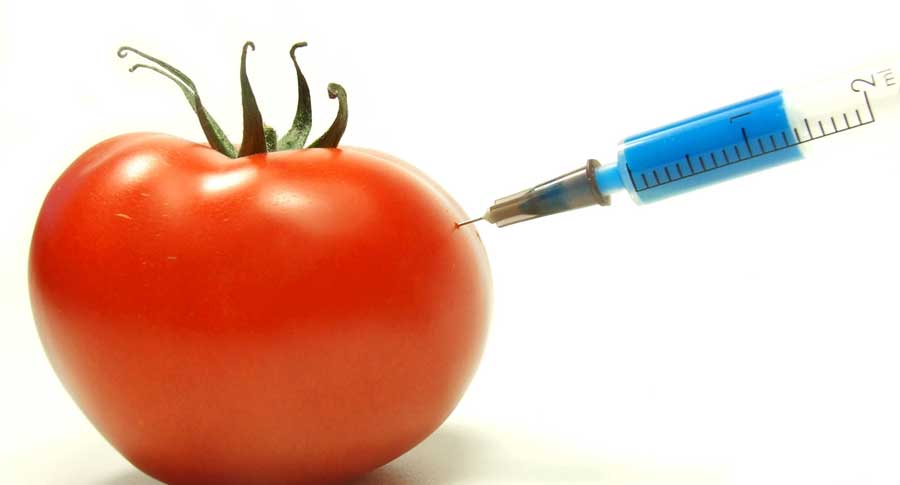The Ethics of GMOs - Looking at both sides
Disclaimer: I'm no expert on genetic engineering, these are only some of my thoughts and opinions I've gathered from some research

Everywhere I look, I see that more and more people are going GMO-free. People brag about it on their social media, and it has even gotten to a point where major companies are using GMO-free as an advertising point.
Now I bet you that there is a fairly large number of people who have no idea what GMO means, and are only on GMO-free diets because their favorite celebrities are doing it, they think they will lose weight, or they think it will cure the autism that is acquired from vaccinations. (If you fall into this category, GMO stands for genetically modified organism).
And of course there are the more rational people. People that believe the processes used to modify the DNA may have some unforeseen dangerous long terms effects. Perhaps they believe it just "isn't right" to modify nature, maybe because of religious beliefs or other morals. Some people may believe that GMOs have less nutritional values. I can personally understand these concerns, and even share some of them. However, it is important to balance these concerns with the positive side of GMOs.
The fact of the matter is Earth is overpopulated, and will become even more overpopulated in the next century. Earth currently has ~7.5 billion people, and that is expected to rise to ~11.2 billion by 2100. Our population growth seems to have no limits, but the amount of arable land does. Even if we were able to use all of the arable land on Earth, it would still be extremely difficult to sustain our population growth. Unless we want to have a mass starvation that kills several billion people, we need to do what humans do best: innovate. GMOs offer a solution, they substantially increase crop yields and may be able to help feed our enormous population.
Are you willing to take a risk and consume GMOs when people are dying of starvation? Is it selfish to avoid GMOs because of their taste when you could potentially be causing the next mass famine. Or what if GMOs end up being toxic and kill more people than they save? Only time will tell.
I hope this article helps you make an informed decision when considering whether or not you want GMOs (I tried to be as unbiased as I could). Leave any thoughts in the comments :)
The problems is the poor people keep popping out kids they cant afford , that will leave less for everybody. We need a system in place to prevent poor from popping out that they cant afford. Tie their tube if they cant afford the first one.
Not starving to death is, of course, much better than eating foods with higher levels of toxins. It seems to be more of a argument of choice for those that can choose. The person that came up with GMO's, in a way has saved upwards of a billion lives from starvation. Very interesting topics
Hi qtip2001! I will continue to avoid all GMO foods that I am aware of. I believe the majority of these foods come from Monsanto, and I do not believe that Monsanto can be trusted with anything, especially our lives. There are other options. Why can't the world's population be educated in farming their own foods (both traditionally and by way of hydroponics)? Much of the starvation across the planet seems to be more related to deliberate actions by those with excessive wealth than a lack of solutions. And as far as the mention of the worlds population getting too big to feed... I've always found this to be an odd concept. Every single one of us comes from the earth, but in cases like this we are discussed as being separate from it and that we are growing like a plague as if brought in from another planet. This planet is set up to be self-sufficient and provides what we need. And people prove every single day that even their small lots are capable of providing them with the nutrition they need. We don't need GMO's. The innovation and advancement should come in the form of education and self-sufficiency. But those in power don't want such a thing. They use food as a weapon (both the lack of it and the bastardization of it).
Very interesting points. I agree that feeding the world lies in a balance between education and innovation. While the planet has been sufficient to feed people for thousands of years, I just don't think that the human race as a whole for the massive population explosion that started in the 20th century. Also as @dang007 notes above, people who can't afford to have children are still having them. While education is important, it takes time. It would be great if everyone was self-sufficient, but many people live in places that simply lack arable land and need to import their food. It is true that throughout history powerful leaders have used the absence of food as a means of control, and my only hope is that in the future everybody will have enough. It's hard to tell whether or not GMOs will be part of a solution, but regardless, we should keep innovating and create new solutions.